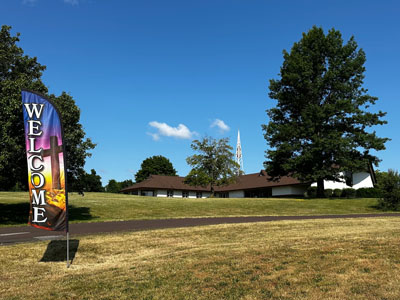
1530 Augsburg Drive • Hilltown, PA 18927
Office: 215-822-9108



St. Peter’s Lutheran Church was founded in 1804, with a building shared by the Lutheran and German Reformed congregations. This was called a “union” church because the Lutherans and Reformed congregations united in building and paying for church costs. The land on which the church was built was donated by the heirs of Abraham Cope in 1803. What the first church was like is unknown, as no extant photos exist.
In 1829, the Rev. William Kemmerer began preaching at St. Peter’s Lutheran and served until his retirement in 1859, when the Rev. Ferdinand Berkemeyer took over. During Berkemeyer’s pastorate, the first church constitution was created and accepted by the congregation; the Hilltown Cemetery Association was formed; the original church was torn down (1875) and a larger, stone church was erected. In May 1876, the new church was dedicated and a Durner pipe organ was purchased; a cast iron fence was erected around the church and the cemeteries (to prevent cows, sheep, and pigs being driven down Hilltown Pike and passing horses from munching on the succulent grass over the graves). Six (6) congregations grew from St. Peter’s. English-language services began in the 1880s though German services were held four or more times each year.
With America’s entry into the European war in 1917, German language services ceased altogether. This was, in no small part, due to the animosity of many Americans to those of German heritage.
Foreign mission support began in 1919, with the support of the George Cope family in Africa. The Young People’s Society was formed in 1922. In 1933, some horse sheds were removed for more car parking.
After World War II, the Lutheran congregation of St. Peter’s grew. The Lutherans chose to leave the “old” church and erect a new sanctuary on ground nearby. The “new” Lutheran church, dedicated in 1981, allowed the congregation to hold services and conduct meetings without checking another congregation’s calendar.
Today, St. Peter’s Evangelical Lutheran Church is proud of its German heritage but welcomes changes and innovations brought by new members of all cultures and heritage.

1530 Augsburg Drive • Hilltown, PA 18927
Office: 215-822-9108

